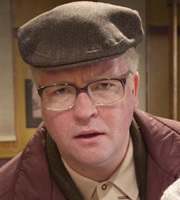- Welcome to Cook'd and Bomb'd.
-
 Load of horses gone mental...
by Goldentony
Load of horses gone mental...
by Goldentony
[Yesterday at 11:58:51 PM] -
 Football Thread 23-24: Part...
by Mobius
Football Thread 23-24: Part...
by Mobius
[Yesterday at 11:58:25 PM] -
 Have never felt so shite....
by Cold Meat Platter
Have never felt so shite....
by Cold Meat Platter
[Yesterday at 11:58:02 PM] -
 Dune: Part Two.
by Mister Six
Dune: Part Two.
by Mister Six
[Yesterday at 11:52:04 PM] -
 Inside Number 9 - Series 9...
by her?
Inside Number 9 - Series 9...
by her?
[Yesterday at 11:49:02 PM] -
 American words/phrases you...
by Sebastian Cobb
American words/phrases you...
by Sebastian Cobb
[Yesterday at 11:47:48 PM] -
 I have never listened to the...
by wrec
I have never listened to the...
by wrec
[Yesterday at 11:47:29 PM] -
 What Non-New Films Have You...
by Small Man Big Horse
What Non-New Films Have You...
by Small Man Big Horse
[Yesterday at 11:47:17 PM] -
 Wildlife spotting 2 - tickety-boo...
by hermitical
Wildlife spotting 2 - tickety-boo...
by hermitical
[Yesterday at 11:43:35 PM] -
 Is this proof that AI has...
by Sebastian Cobb
Is this proof that AI has...
by Sebastian Cobb
[Yesterday at 11:42:31 PM]
Members
 Total Members: 17,827
Total Members: 17,827 Latest: skinnylike
Latest: skinnylike
Stats
 Total Posts: 5,583,304
Total Posts: 5,583,304 Total Topics: 106,738
Total Topics: 106,738 Online Today: 752
Online Today: 752 Online Ever: 3,311
Online Ever: 3,311- (July 08, 2021, 03:14:41 AM)
Users Online
 Users: 83
Users: 83 Guests: 629
Guests: 629 Total: 712
Total: 712 phes
phes Benjaminos
Benjaminos Jackson K Pollock
Jackson K Pollock CptPorkDouglas
CptPorkDouglas JuggaloBoi420
JuggaloBoi420 Cold Meat Platter
Cold Meat Platter McDead
McDead Poobum
Poobum edwardfog
edwardfog DelurkedToHelp
DelurkedToHelp crankshaft
crankshaft neveragain
neveragain mojo filters
mojo filters Severai
Severai Mark X
Mark X Tiggles
Tiggles The Crumb
The Crumb SteveDave
SteveDave Dex Sawash
Dex Sawash RicoMNKN
RicoMNKN Nooses Give
Nooses Give bobloblaw
bobloblaw DocDaneeka
DocDaneeka Goldentony
Goldentony Kankurette
Kankurette Claude the Racecar Driving Rockstar Super Sleuth
Claude the Racecar Driving Rockstar Super Sleuth C_Larence
C_Larence Mobius
Mobius Mx Wrongs
Mx Wrongs Bingo Fury
Bingo Fury Mister Six
Mister Six Queen Peach
Queen Peach Memorex MP3
Memorex MP3 jamiefairlie
jamiefairlie AnotherOli
AnotherOli DJ Bob Hoskins
DJ Bob Hoskins Kelvin
Kelvin Ted_Dibiase
Ted_Dibiase Mortimer
Mortimer Mr Vegetables
Mr Vegetables sprocket
sprocket non capisco
non capisco Lordofthefiles
Lordofthefiles Wentworth Smith
Wentworth Smith Cuellar
Cuellar Glebe
Glebe Ruben Remus
Ruben Remus chutnut
chutnut Incy Wincy Mincey
Incy Wincy Mincey kngen
kngen dead-ced-dead
dead-ced-dead Poirots BigGarlickyCorpse
Poirots BigGarlickyCorpse daf
daf mealy potatoes
mealy potatoes DrGreggles
DrGreggles cosmic-hearse
cosmic-hearse Blumf
Blumf drummersaredeaf
drummersaredeaf Zero Gravitas
Zero Gravitas RHX
RHX Buffalo Many Times
Buffalo Many Times KaraokeDragon
KaraokeDragon Small Man Big Horse
Small Man Big Horse Bjarnfredarson
Bjarnfredarson Psybro
Psybro Huxleys Babkins
Huxleys Babkins Better Midlands
Better Midlands
User actions

